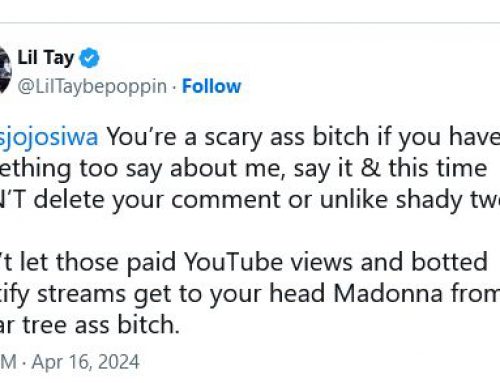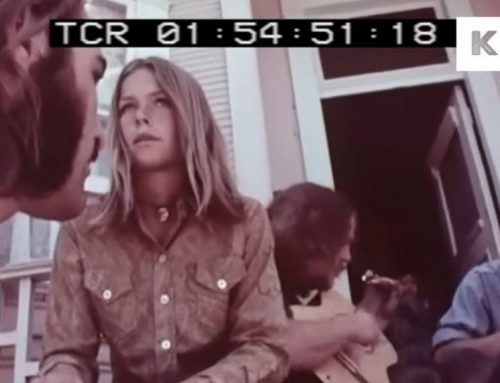Source: http://www.crazydaysandnights.net
The Old Hollywood Con Has A New Name
It is said that history doesn’t repeat, but it often rhymes.
In over 100 years of Hollywood history, once every couple decades some person, or company, has been able to swindle enough cash from investors to even attempt this brazen scheme.
Almost every major studio has attempted some form of this scheme, on a smaller scale, at one time or another in its history.
The most recent example is back in the early 90’s, when Sony paid through the nose for Columbia and TriStar Pictures. Sony lost billions of dollars in the following years.
Each and every single time, the scheme has ended in miserable financial failure for the investors who were left holding the bag at the very end.
Many decades ago, RKO drove itself into receivership, and Warner Brothers almost went bust.
The scheme goes like this: Buy up as much talent in town, as quickly as possible, and it’ll all pay off later.
Doesn’t matter how much you have to pay.
Trust us, the financials will work out very nicely in the future.
Because we will simply chase everyone else out of the game.
Just give us a lot of money, so we can make sure that everyone else will go bust – before we do.
It will only take us a few short years to make that happen.
Then, we’ll be the only option in town.
We will control everything.
We will be able to squeeze the amount of money paid for talent back down, while charging our customers a ton of money.
We will be the last man standing, rolling in dough.
In recent years, an almost TV-network has made that age-old scheme the centerpiece of their corporate strategy.
This almost-TV network will pay at least twice what anyone else will for original content, whether you are selling a TV series, film – or even a stand-up comedy special.
The modern version of this scheme is enabled by a very unique form of accounting hocus-pocus, used by the almost-TV network.
This accounting magic allows the company to claim that it is generating a “profit”.
The reality is that this company burned through about $2 billion of cash last year, and will burn through another $3-4 billion in 2018.
This almost-TV network simply depreciates the value of all these films and shows over a far longer period of time than everyone else ever has.
The company claims that their definition is legit, because the content is in their own “library”.
This almost-TV network is the 1st to deliver its content in a unique way, using relatively new technology – they were the first company to do it this way on a large scale.
This means the Feds presently have no basis to challenge the almost TV-network on its suspect accounting, because the new “definition” has not been proven wrong.
Only the ultimate financial collapse of the company will do that.
In the meantime, the accountants and auditors go along for the ride and happily collect their fees, as they always do.
The almost-TV network tells its stockholders that it can taper down this spending spigot in the future, to generate actual cash.
This is an obvious lie, in 2 ways.
If the almost-TV network ever cut spending and new content, many subscribers would drop them like a hot potato.
Second, the company is making many big public commitments to spend money like drunken sailors, for several years into the future.
The huge deal they made this week – that is just to the head guy alone.
It doesn’t count a penny towards what it will cost to make his shows.
This almost-TV network also doubled down on a sequel for a very expensive recent film.
They literally doubled the bidding price for the original, which was a disaster.
Let’s call these Films A1 and A2.
A1 isn’t still worth most of its massive production cost, which is the value the almost-TV network uses for its accounting – just because A1 is part of their “library”.
Everyone knows A1 is worth pennies on the dollar.
The company claimed that millions of people watched A1.
Maybe, but A1 was so bad that many of them probably turned it off part-way through.
Most of those who watched the whole thing thought it was a lousy film – and won’t bother to watch A2.
Recently, the almost-TV network just bailed out a struggling once-major studio, and bought their awful film for big money.
Let’s call this Film #1.
Film #1 would have completely flopped at the box office, as the reviews were about as terrible as they can possibly get.
Critics have called Film #1 a total mess.
Film #1 is the 3rd film in a sci-fi series, but it is missing the main actors and director from the successful original film.
Very recently, the almost-TV network bought yet another film, which a major film studio had put on the shelf – rather than bother losing even more money releasing it in theaters.
This film stars the lead A-List actress from the original in Film #1’s series.
Let’s call this film #2.
Stockholders in the almost-TV network are flying high right now.
In the next couple of years, they will see these heady gains evaporate.
This almost TV-network has a rapidly growing mountain of debt, which is getting much more expensive to finance.
Almost TV Network: Netflix
Huge deal : Netflix’s $300 million deal with Ryan Murphy
Film A1 &A2: Bright (and sequel)
Film 1: The Cloverfield Paradox
studio: Paramount
Amount: more than $50 million
Film 2: Extinction
Netflix’s $300 million deal with Ryan Murphy is ‘expensive as opposed to explosive’ (NFLX)
Netflix is way overvalued, according to Wedbush Securities analyst Michael Pachter, who is one of the longest-running bears on the company. He gives the movie-streaming giant a price target of $110 a share, some 60% below its current level.
Netflix made a splash on Tuesday, announcing a five-year $300 million contract with famed “Glee” and “American Horror Story” producer Ryan Murphy, who is currently finishing his deal with 21st Century Fox.
And while the deal was hailed as a win in the entertainment world, Pachter says he doesn’t think it makes sense for Netflix. Pachter told Business Insider the company’s deal with Murphy is “expensive as opposed to explosive,” and that he’s concerned about Netflix’s cash-burning tendencies.
Pachter says Netflix is “not investing prudently” and even if Murphy has a 50% success rate the company is “still going to lose money.” – Source
Netflix Buys Michael Pena-Lizzy Caplan Thriller ‘Extinction’ From Universal (EXCLUSIVE)
In the latest Hollywood rights deal for Netflix, the streaming service has acquired worldwide rights for the sci-fi thriller “Extinction” from Universal — two months after Universal pulled it off its schedule.
Netflix plans to release “Extinction” later this year. The company confirmed the move to Variety on Thursday, four days after it began streaming J.J. Abrams’ “The Cloverfield Paradox” following the Super Bowl, and two weeks after sources said Netflix was buying the rights of what was then called “God Particle” from Paramount. – Source
Read more on these Tags: Ryan Murphy









